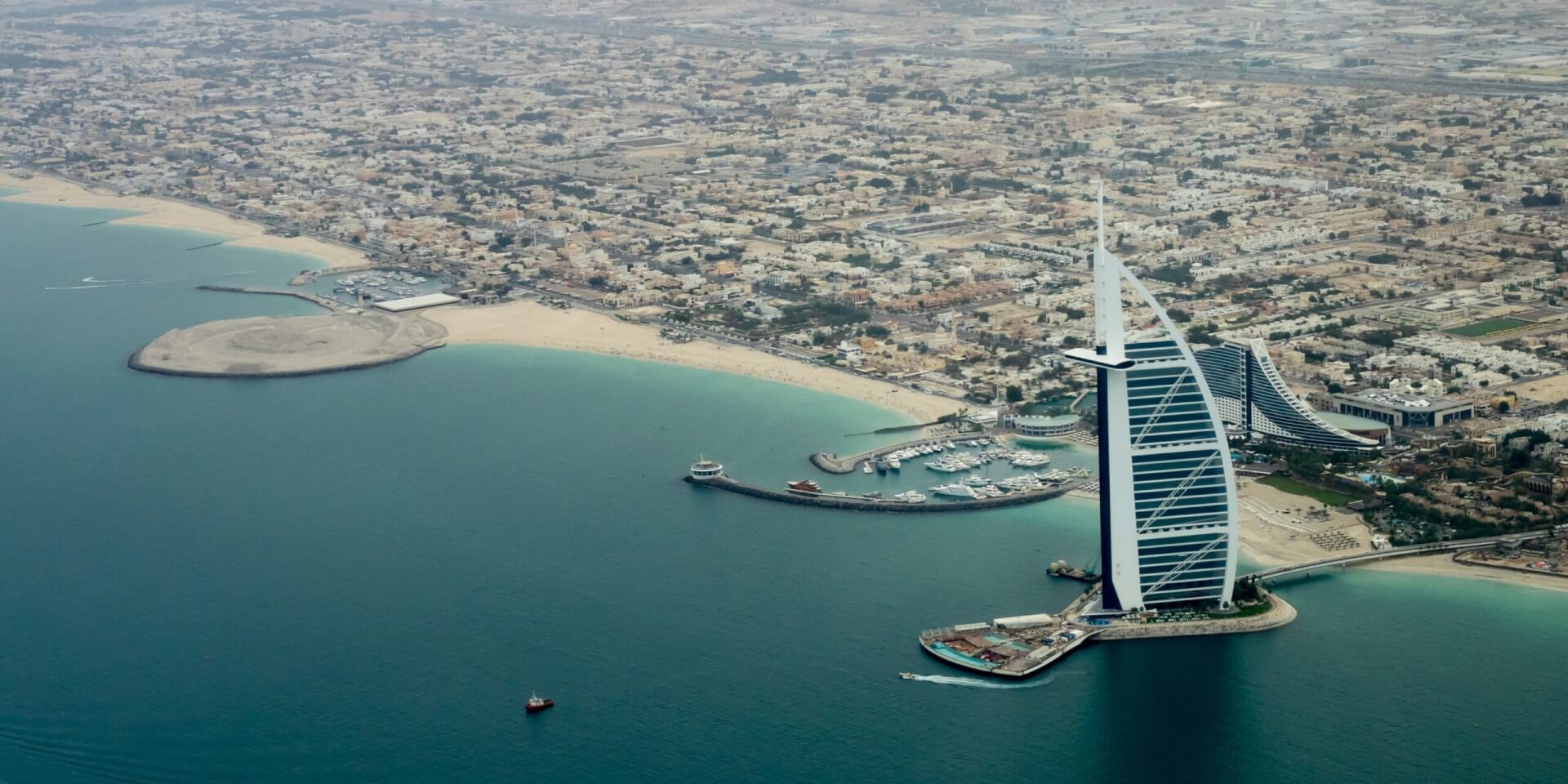
The upcoming 2023 United Nations Climate Change Conference (COP28) is an important moment in the implementation of the Paris Climate Agreement. It will be the time for the Global Stocktake, the review of progress made and efforts still to be made, with political recommendations for the way forward.
The International Science Council (ISC), its members and partners are involved in several official COP28 side-events and parallel meetings. The full extent of our engagement is detailed below.
The UN climate change process significantly relies on science and systematic observations. Since the 1950s, the global scientific community of the International Science Council has played a pivotal role in the development of climate science at the international level and in informing international policy processes. Over sixty years, together with other international organizations, the ISC co-sponsored several science initiatives, programmes, scientific committees, and observing systems, known as Affiliated Bodies, that generated critical knowledge on climate change and created an increasingly comprehensive understanding of the Earth system.
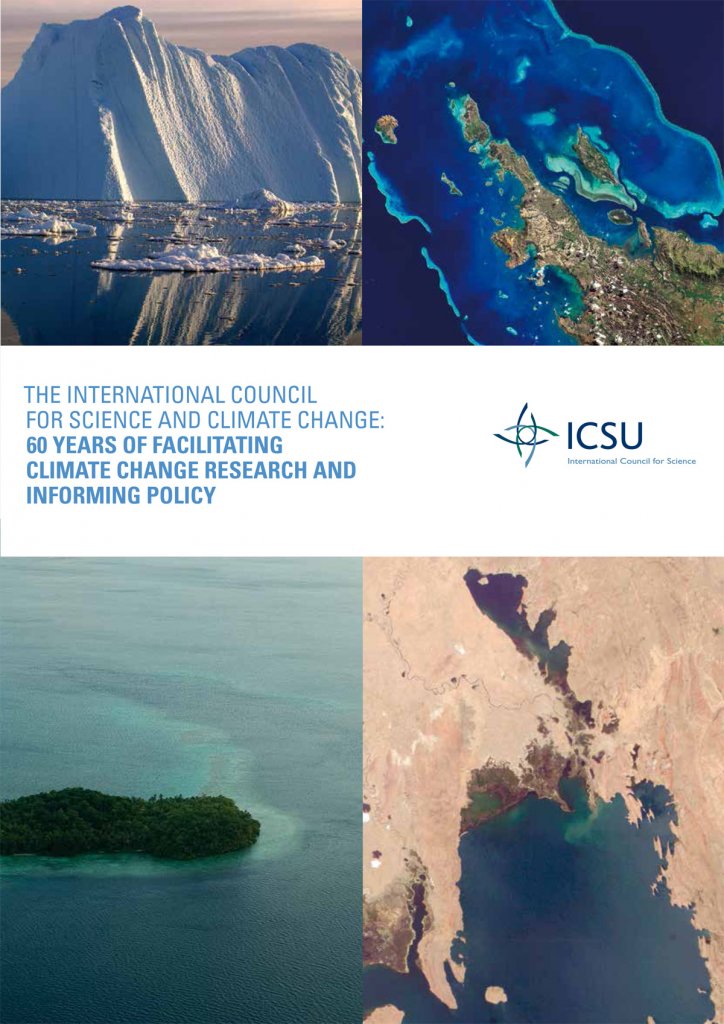
60 years of facilitating climate change research and informing policy
This document highlights the major contributions of the ISC (formerly ICSU) and its scientific community to the development of climate science, and explains how ISC’s approach to facilitating research collaboration to inform policy development has evolved over time.
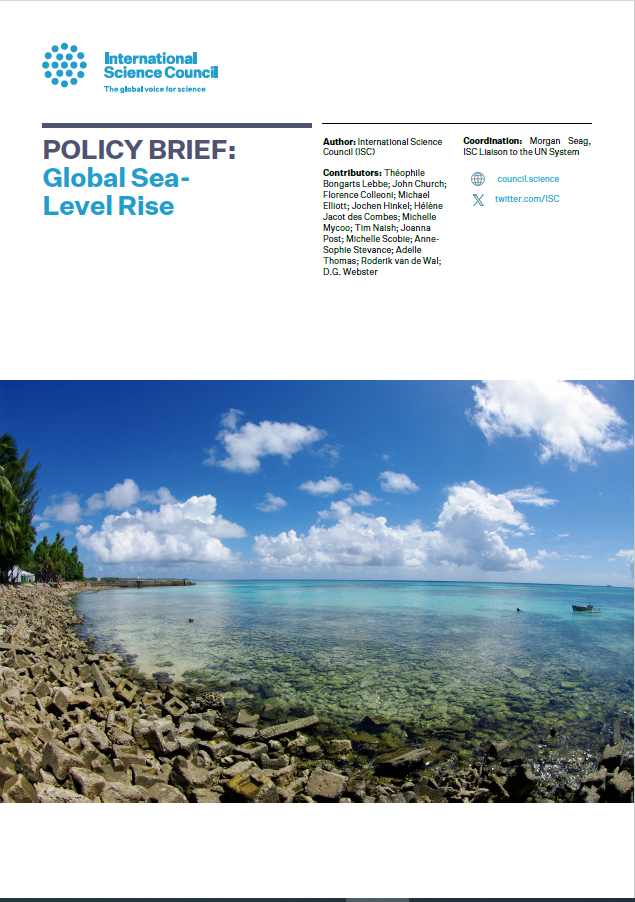
Policy Brief: Global Sea-Level Rise
This policy brief sheds light on key considerations for policy-makers on a wide range of issues related to sea-level rise, highlighting the value of engaging actionable, interdisciplinary scientific knowledge in responding to current and future challenges.
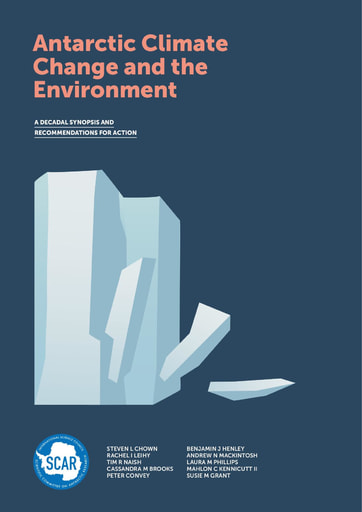
Antarctic Climate Change and the Environment: A Decadal Synopsis and Recommendations for Action
This report from the Scientific Committee on Artic Research (SCAR) provides concise compiled synopses of current understanding, explicit recommendations for actions to address change, and recommendations for additional research.
From the climate emergency and global health to the energy transition and water security, the ISC and its high-level Global Commission on Science Missions for Sustainability argue that global science and science funding efforts must be fundamentally redesigned and scaled up to meet the complex needs of humanity and the planet.
As described in the report Flipping the Science Model: A Roadmap to Science Missions for Sustainability, the Commission calls for a ‘mission science’ approach, meant to overcome the fragmented, compartmentalized scientific knowledge that often fails to connect with and to address society’s most immediate needs. It seeks to work in a transdisciplinary, collaborative way that is demand-driven and outcome-oriented.
Find information about in-person and online activities being coordinated by ISC Members, Affiliated Bodies and the Council’s wider network, and learn how you can join events. This list is being regularly updated. Please refer to the links below for more information.
🟢 4 December – Virtual Knowledge Sharing Dialogue on Climate Change between the ISC Affiliated Bodies and the ISC Membership
During the COP28, the ISC will organize a virtual Knowledge Sharing Dialogue that will bring together several Affiliated Bodies to share the latest developments in climate science, present their flagship activities, discuss the opportunities for engagement, and outline the critical needs for sustaining successful scientific collaboration on climate change at the international level.
➡️ For more information and registration.
🟢 6 December – ISC / UK Royal Society COP28 side-event: “Better understanding economic impacts of climate change and accelerating science-based climate action”
The International Science Council together with ISC Member, The Royal Society (UK), are co-hosting an official United Nations Framework Convention on Climate Change (UNFCCC) side-event in the Blue Zone at COP28 in the United Arab Emirates, with participation of Professor Jim Skea, IPCC Chair. This event will additionally be livestreamed on the UNFCCC website and YouTube.
➡️ For more information.
🟢 11 December – ISC / UNDESA side-event: “Advancing Climate Action and SDGs synergies: way forward”
The International Science Council together with the UN Department of Economic and Social Affairs (UN DESA), the International Institute for Applied Systems Analysis (IIASA) and Future Africa will organise this virtual event during the COP 28 to present key benefits for tackling climate and SDGs together, discuss current barriers and enablers for the synergistic action, and outline a framework and existing approaches for synergistic action.
➡️ For more information and registration.
This list of events from the ISC Affiliated Bodies and partners will be updated regularly.
🔵 ISC Governing Board and Fellowship Members
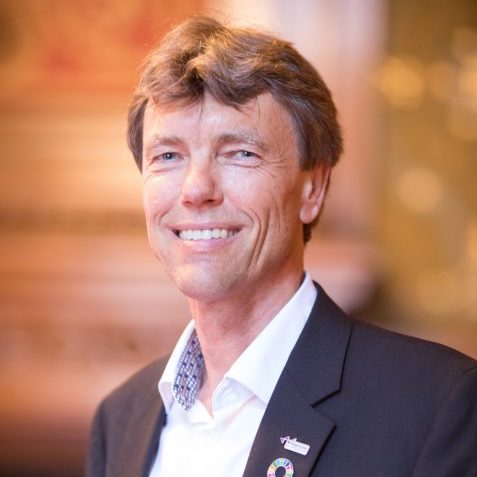
Head of research unit Physical Oceanography at GEOMAR Helmholtz Centre for Ocean
ISC Fellow
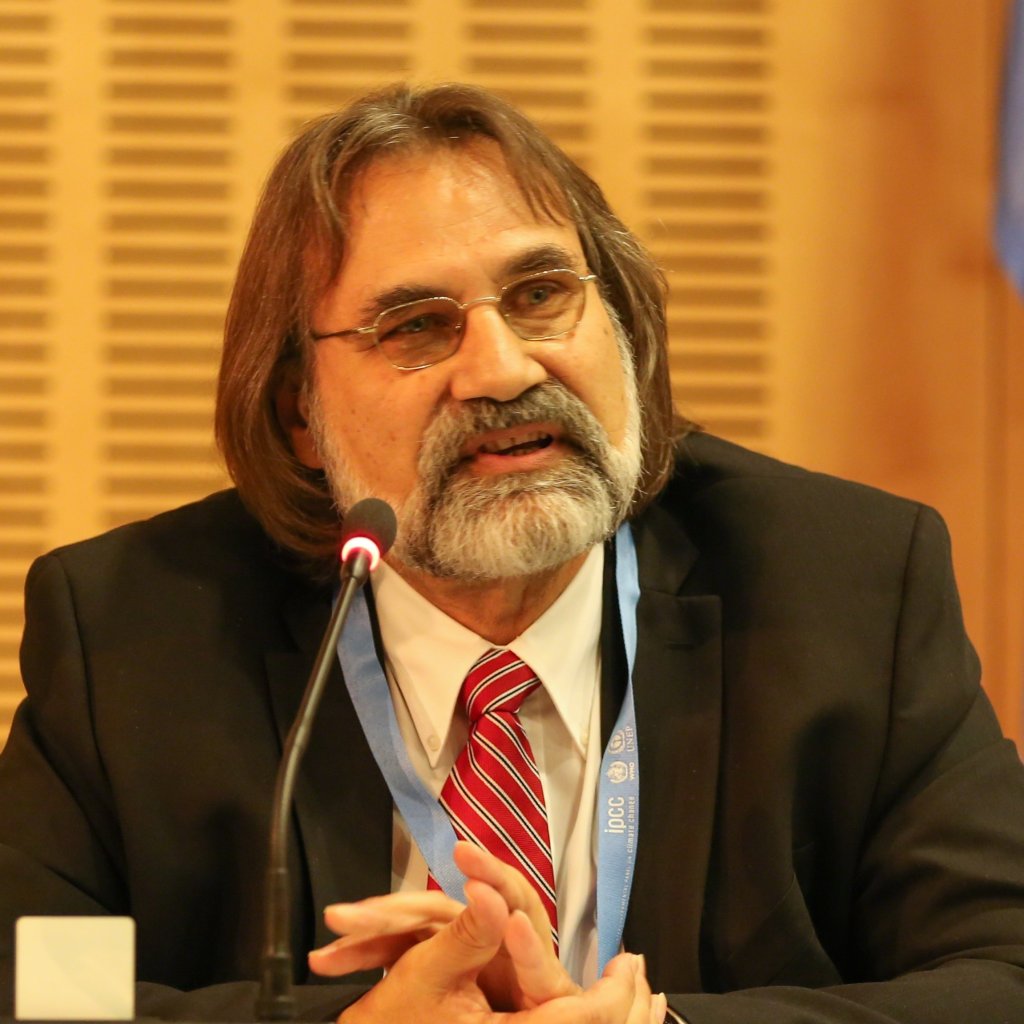
Deputy Chair of the Group of Chief Scientific Advisors to the European Commission and Director of The World In 2050
ISC Fellow
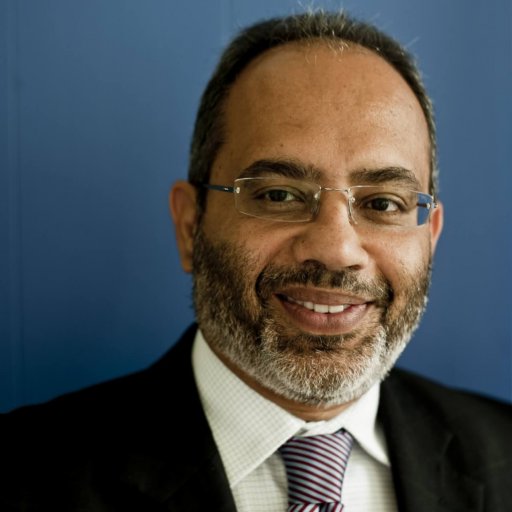
Professor at the Mandela School of Public Governance, University of Cape Town
ISC Fellow
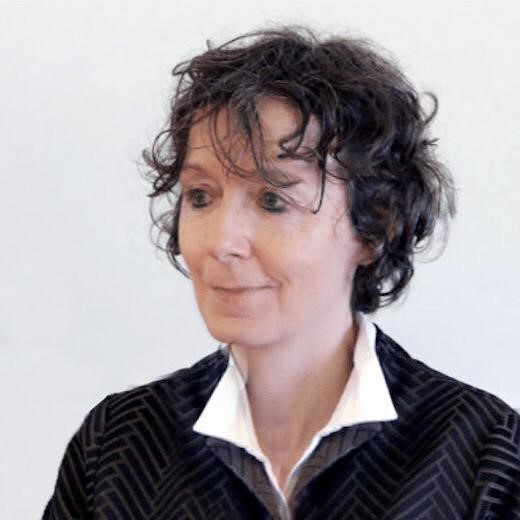
Research Director
Centre National de la Recherche Scientifique (CNRS)
ISC Fellow
🔵 ISC Affiliated Bodies and partners
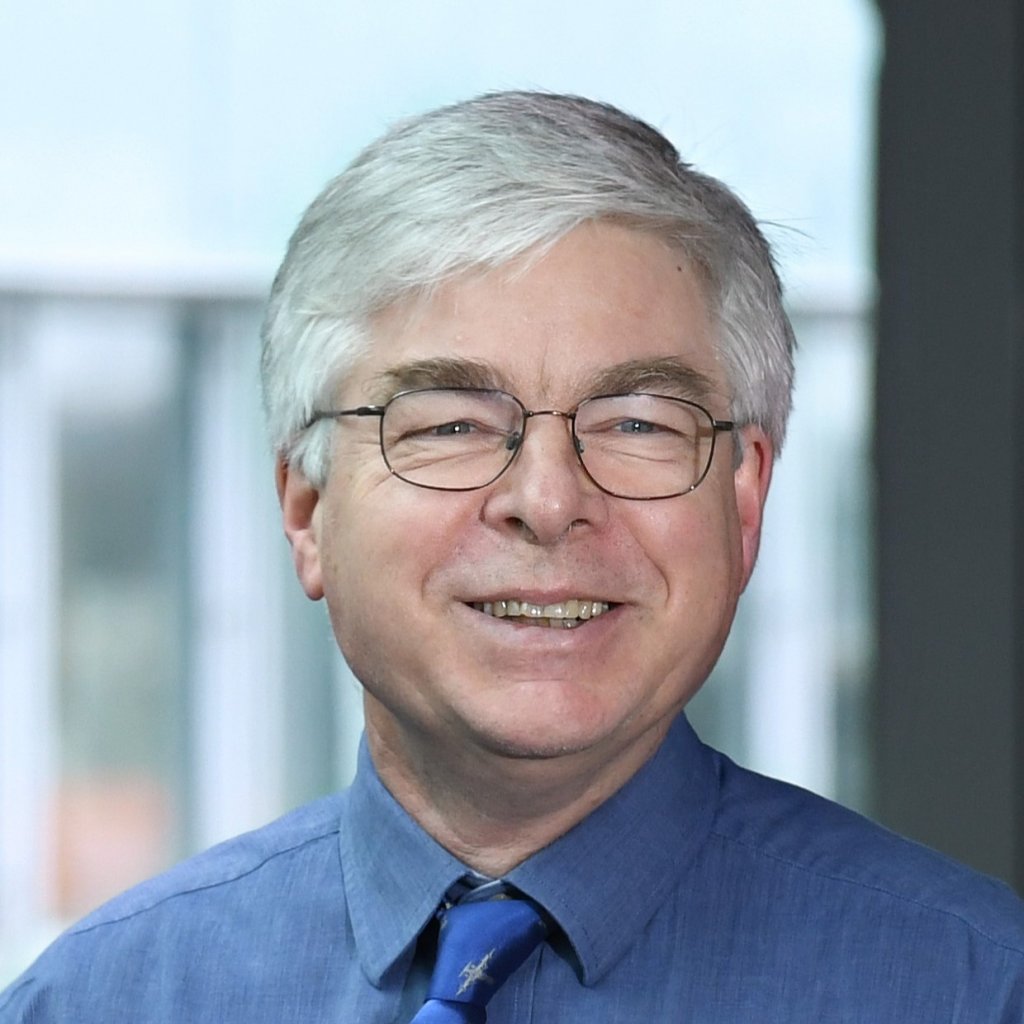
Co-chair of the WCRP Joint Scientific Committee
World Climate Research Programme (WCRP)
🔵 ISC Staff
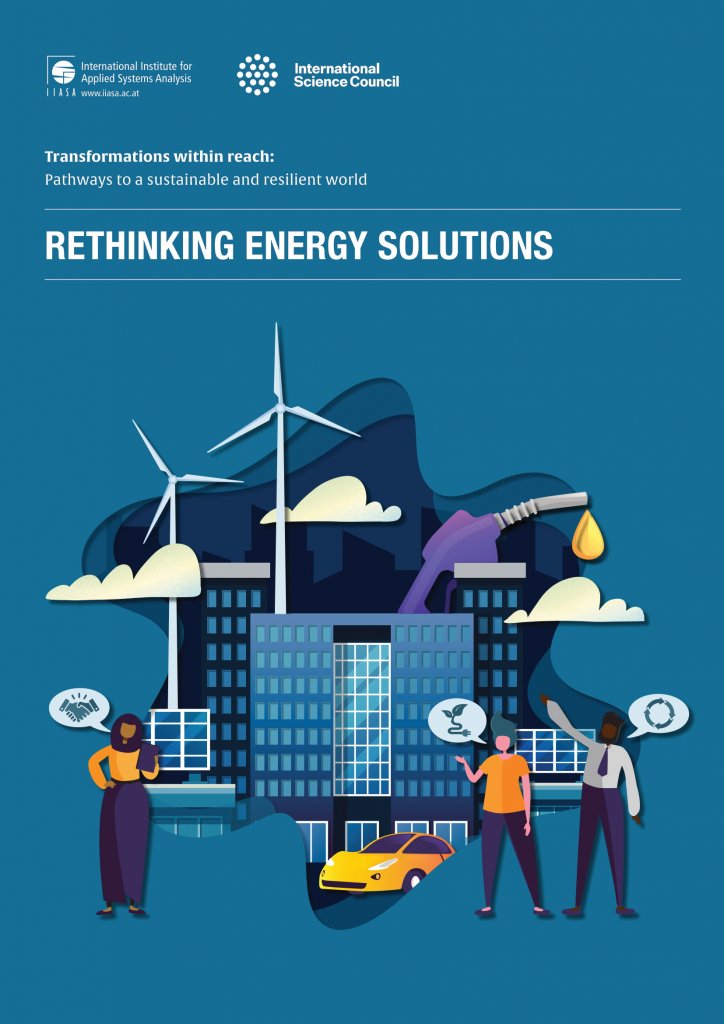
This report is one of five publications developed through the IIASA-ISC Consultative Science Platform “Bouncing Forward Sustainably: Pathways to a post-COVID world” and launched in January 2021.
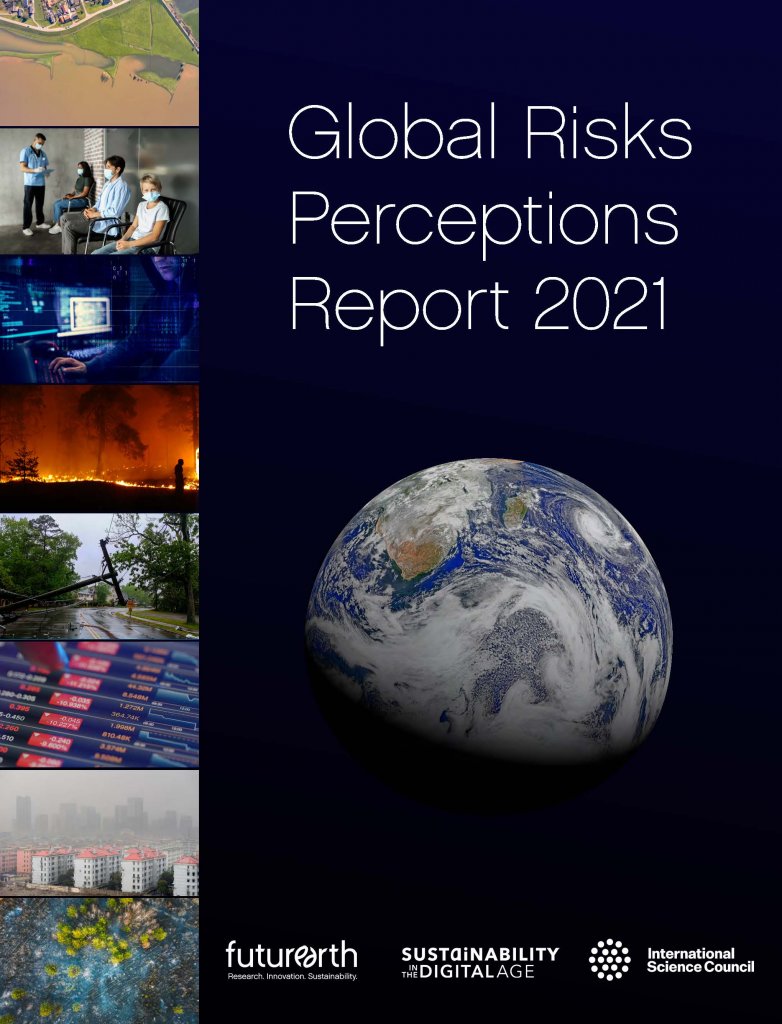
Global Risks Perceptions Report 2021
This report shares the findings of the second iteration of the Global Risks Scientists’ Perceptions survey. In repeating the exercise first conducted in 2019 (see Future Earth, 2020), the project team recognizes the importance of revisiting risk perceptions over time.
Photo by Christoph Schulz on Unsplash.